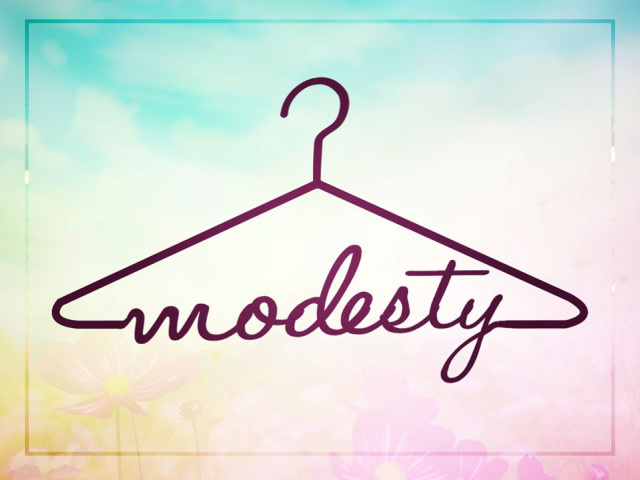Question
Hi Gramps,
I’m confused about modesty in the church. I see so many active members of the church who wear short shorts and tank tops. I have also noticed endowed adults that use working out as an excuse to dress immodestly and then post about it on social media. I’m not judging them, just wondering why these supposedly faithful members are choosing to dress immodestly? It confuses me and doesn’t help me in seeing so many examples of this from people I thought I could look up to.
I know that the church is true in my heart and I want to go to the Celestial Kingdom, but I also don’t agree with a lot of things that happen and have happened in the church. I have been to other churches and feel more at peace there than in an LDS church. I want to believe in the church and its purpose but I’d rather leave behind the church to be in a place I feel I belong, which I have already started to do. I’m searching for some advice about this and hoping you can help.
Heidi
Answer
Hi Heidi,
You submitted these two questions separately. I’m going to answer them together, because I think the first question is an outgrowth of the second. And I think that second question is really the core of what you’re dealing with.
Modesty and hypocrisy
First question first: Some Latter-day Saints don’t dress modestly. You say that confuses you. There are many ways to respond to this; let me start by pointing out that this sort of behavior is nothing new to you. You have known since before you were eight years old that many people don’t follow according to what they say they believe. This is true within all groups, not just Latter-day Saints, and probably is true for every one of us at some points in our lives. Have you never done something you knew was wrong, but you did it anyway, and then when you were ashamed of yourself, went looking for some flimsy excuse to justify yourself?
Welcome to mortality.
The term hypocrite refers to those who try to deceive others by pretending to believe or act in a way that they do not really believe or act, hoping to be recognized for virtues they don’t possess. It’s the man who wears a military dress uniform, complete with medals, and tells riveting stories about his hair-raising exploits in Vietnam or Kuwait, when in reality he never served a day in the armed services. It’s the woman who vocally decries racism in others, yet in her heart despises other people, precisely because of their race. In fact, the word “hypocrite” derives from an ancient Greek word meaning “an actor in a play”, someone who in Greek tragedy would literally hold a mask over his face to show the audience who the character was supposed to be that he was playing.
Careful now. This is not to say that everyone who acts differently from what they preach is a hypocrite. Any loving parent will want his child to be better than he is, even if that means telling his child “Don’t smoke” while he himself puffs away on his two-pack-a-day addiction. The key difference is that the parent who’s smoking doesn’t justify himself in his actions. He doesn’t “put on a false face” and pretend to be something he is not. Such a parent will freely admit that he shouldn’t smoke, and will continue making efforts to stop. To preach a standard that you aren’t yet living by isn’t necessarily hypocrisy. If it were, no one could ever grow spiritually and morally without making themselves hypocrites. The key to identifying hypocrisy is recognizing the “false face” being used.
In any case, it’s easy to point out hypocrisy in others. It’s more painful, but much more useful, to detect it in ourselves.
A deeper answer to this question involves considering what is really meant by “modesty” (hint: it doesn’t directly have to do with the clothing you wear) and how that applies to people, especially to you. I’ll revisit that, because I think it’s important. But for now, let’s get down to the underlying meat of your questions to me.
Craving heaven
Heidi, you say that you “know the Church is true” and that you “want to go to the celestial kingdom.” Then you say that you would “rather leave behind the church to be in a place” where you feel like you belong.
Which is it? Either you know the Church is Christ’s kingdom and you want to live in the celestial kingdom (which the Lord’s earthly kingdom leads to), or else you want to go in some other direction. The two things are mutually exclusive. As a human being, you are perfectly capable of having conflicting feelings, wanting two things that can’t exist together. As a being with agency, you are also perfectly capable of choosing which path you follow. You know that you cannot both hold to a testimony of the Church of Jesus Christ, hoping for exaltation with our Father, his Son, and all the Saints, and also follow a path that leads away from those very things.
In our quiet moments, each of us feels a longing for something real, substantial, solid, permanent. We want a reality much greater than what we see around us. We want heaven. But heaven can be had only on the terms God has set. If you do not meet God’s terms, you cannot have part in God’s heaven. Fortunately for us, God’s terms are straightforward: Repent. That means obeying God’s commandments, things like being baptized and partaking of the sacrament. It also means underlying things, like being truthful and not hypocritical, dealing honestly with others, and seeking to emulate Christ. And it means that we endure to the end. The word “end” as used here can mean “purpose”. What is the end or purpose to which we’re enduring? Why, eternal life in the celestial kingdom of our Father. Exactly what you say you want.
In your question to me, you said that you “don’t agree with a lot of things that happen and have happened in the church.” Since you didn’t expand on what you meant, I’m left to guess at what you were referring to. But in a way, it doesn’t matter. A “testimony” of a gospel principle, including the truthfulness of the Restored Church, means a revelation to your mind or heart or spirit that that gospel principle is true. It is the still, small voice of God speaking to you, perhaps in words but more likely in feeling and in understanding. And when you have received such a revelation from God himself, problems or imperfections that you think you see in the Church become unimportant. No man (or woman) is perfect, not today in this mortal state. That does not matter. God deals with us in our imperfections. As we accept Christ and strive to come unto him, we repent, and therefore are found acceptable before God, even though we’re not yet perfect.
A testimony is a sacred thing. We must treasure it as the voice of God to us, because that is exactly what it is. Remember Alma teaching about planting the seed (the word of God) in your heart and watching to see if it takes root and grows? “When you feel these swelling motions, ye will begin to say within yourselves—It must needs be that this is a good seed, or that the word is good…” That is testimony. That is a sacred experience. That is the voice of God to your spirit. Will you follow that voice? Will you treasure and protect the seedling that has begun sprouting in your heart, keeping it safe from the tempests and tramplings of life until it has taken root and grown enough to survive and thrive even in adverse conditions?
The world has its own morality. We generally call it immorality. Do not let the cares of the world and the prevarications of the worldly deter you from following the gospel path. The world lies in ignorance and sin. We have been given something much greater than that. Live by that more exalted standard.
More about modesty
Your first question had to do with modesty, which you seem to believe means not dressing in revealing clothing. I admit that one meaning of the word “modesty” as we use it today is just that. I also agree that those who exhibit true modesty would never dress in revealing clothing with the intent of showing themselves off or trying to be popular. But there is a lot more to it than just clothing.
At its core, modesty means that you don’t draw attention to yourself unnecessarily. A modest person does not set herself up for display so that others can see how wonderful, beautiful, sexy, or brilliant she is. The modest person does not view life as a competition, as if they’re in a never-ending beauty contest.
I don’t know you, Heidi, but I’m going to talk to you as I would talk with my own precious granddaughter. Perhaps you’re intellectually gifted. If so, that’s great. Intelligence of mind is a gift from God, and those who possess such a gift often have advantages in life that aren’t as freely available to others who aren’t as smart.
So does modesty mean that you have to hide your intelligence or pretend that you’re not really very smart? Of course not, no more than modesty might require the tall man to pretend he’s short or the beautiful woman to pretend she’s plain. Modesty doesn’t expect you to lie about your gifts; doing so can even be a form of hypocrisy, which is certainly not modesty.
Does modesty mean that you never go around flaunting your intelligence and showing other people how much smarter you are than them? Yes, that is exactly what it means. Your intelligence is a gift meant to allow you to glorify God and help your fellow man, but never a bludgeon to club other people with and make them feel insufficient when compared with you.
Given this idea of modesty, do you think a modest person would intentionally wear revealing clothing for the purpose of showing herself off? Would she dress provocatively, either to attract those of the opposite sex or to show her friends how cool she is? Clearly not. A modest person would never display herself (or himself) in such a manner. It’s only in our show-off culture, where people are expected and even encouraged to act in as prideful and immodest a way as possible, that we have lost the meaning of modesty and think it must mean not wearing revealing clothing. That’s only one tiny part of modesty. To say that modesty means that we don’t dress in revealing clothing is like saying that honesty means that we don’t cheat on a spelling test. Yes, it’s true, but it’s only one tiny example of a much larger principle.
I do not know why Latter-day Saints dress provocatively or revealingly. In some cases, it may be mere ignorance. In many other cases, I expect there is an underlying lack of modesty. Learning to dress appropriately is one example of modesty; it is a visible, active example of your internal modesty of heart . But that real modesty is something much deeper and more encompassing than merely choosing the appropriate way to dress. While you strive to be modest of heart, be careful not to pass heavy or condemnatory judgment on those who may not understand things as you do. Judge carefully, as you hope to be judged.
You have some important issues to deal with, Heidi. Please go to your Father in prayer and plead for his guidance. Then listen carefully in your heart to hear his voice to you. Follow that testimony.
Gramps






